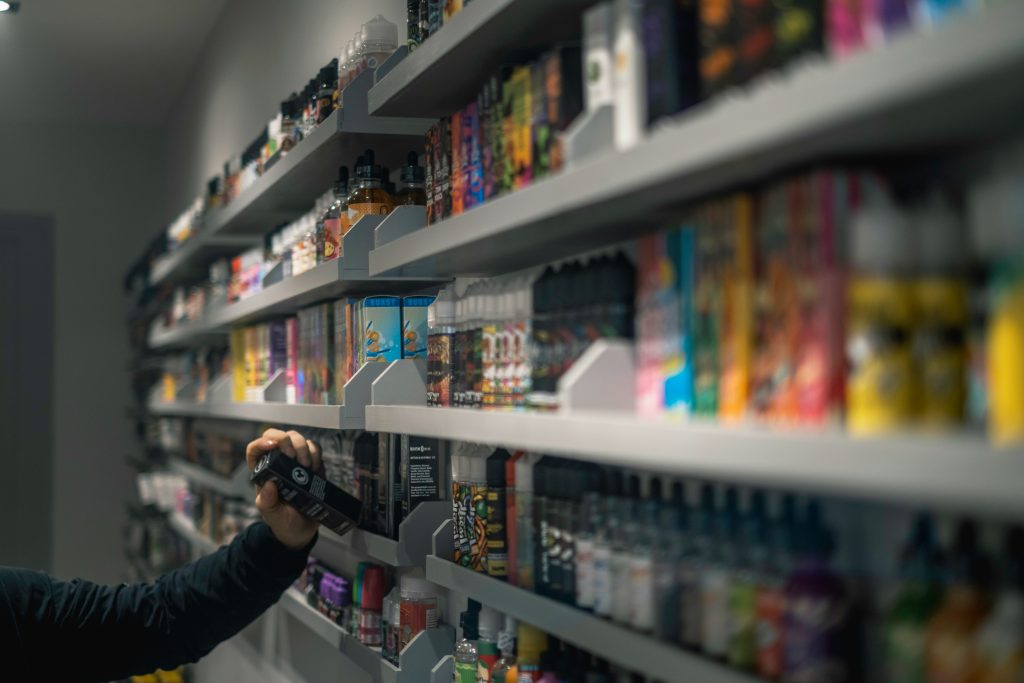[[{“value”:”
MONTGOMERY, Ala. — Starting in July, consumable THC products like delta-8 will see strict regulations imposed on them in Alabama after Gov. Kay Ivey on Wednesday signed House Bill 445.
Carried by Rep. Andy Whitt, R-Harvest, the bill will impose a THC cap of 10 milligrams per serving for edibles and beverages, will ban any smokable hemp products, prohibit use for those under age 21 and limit THC product availability to specialty shops or dedicated areas of grocery stores of at least 14,000 square feet. It will also impose a 10% tax on the sale of all THC products, establish a licensing requirement for retailers and impose severe civil and criminal penalties for retailer violations.
The proposal proved popular among members of law enforcement, some of whom had said a sizable share of THC products available at retailers exceeded the legally-permitted 0.3% amount of THC per serving, and that minors were increasingly found to be in possession of the largely unregulated products. It also proved popular among a number of lawmakers, many of whom had noted the explosion of cases reported to the Alabama Poison Control Center involving minors having injected THC products.
“By putting guardrails on these unregulated and untested products, we’ve taken meaningful steps to bring oversight and responsibility to an industry that’s operated without either for too long,” Whitt told Alabama Daily News on Wednesday. “We say we want to protect our kids—but for years, we’ve allowed these dangerous products to sit on store shelves right next to the candy. That’s not leadership. That’s neglect.”
However, the bill also had fierce critics, both from those who argued the bill did not go far enough, and retailers who said it went too far.
Hemp shop owners from across Alabama urged Ivey to veto the bill, fearing the regulation would devastate their businesses.
“We have a bunch of people that come in here that require a lot more than (the 10mg THC cap), so they would stop coming here pretty much just for that reason,” said Matthew Callahan, who owns Route 420 Dispensary in Mobile, speaking with Alabama Daily News this week. “They’re talking about getting rid of all the (smokable hemp products), which helps tons of people; I have multiple customers with Parkinson’s (disease), people with cancer, I mean just tons of different conditions that benefit from it.”
Rep. Andy Whitt shows members of the House Health Committee various THC products, highlighting their high THC content at the Alabama State House in Montgomery, April 2.
Another organization that had come out against HB445 has been the Alabama Policy Institute, an influential conservative think tank, but for entirely different reasons. It argued the bill doesn’t go far enough and called for an outright ban on all psychoactive THC products.
Consumable THC products have become a multibillion-dollar industry since the production and sale of hemp products was legalized under the 2018 Farm Bill, an unintended consequence of the federal legislation.
“Let’s be clear,” Whitt said Wednesday. “This isn’t a blanket ban on hemp, and it’s not a step toward legalizing marijuana. It’s about applying common sense, prioritizing child safety, and finally bringing responsible regulation to the table.”
Alabama Daily News’ Mary Sell contributed to this report.
“}]] Gov. Ivey signs THC product regulation bill into law Read More


